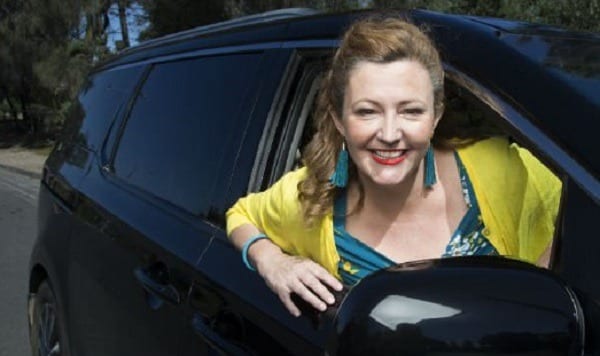Australian women-only rideshare business Shebah is in voluntary administration, after falling through the cracks in government COVID-19 support and struggling to attract backing from the venture capital sector or the government.
Sam Kaso and Rachel Burdett of Cor Cordis have been appointed as administrators, and will try to save the business through a sale or restructure.
Founded in 2017, Shebah raised a record $3 million in equity crowdfunding two years later, with women making up 94% of investors.
Pre-pandemic, the startup was providing up to 10,000 trips each month. As well as being used to take women to social events, Shebah provided school transport for children and worked with domestic violence support services to provide safe transport for women and children.
It is licensed to carry unaccompanied children, with 80% of cars fitted with car seats. That means it can be used for transporting foster children and other vulnerable minors.
Founder and chief executive Georgina McEncroe describes running Shebah throughout the COVID-19 crisis as “staring at a roulette table”, wondering which way the ball is going to go.
Revenues dropped by 70%, as workplaces and schools shut down across the country, time and time again.
While drivers could receive JobKeeper, Shebah itself wasn’t eligible for government support as it was able to continue trading.
McEncroe had also been trying to attract more equity capital. In fact, she came close to closing a round, before the latest COVID-19 lockdowns caused investors to back out.
She also applied for the federal government’s Boosting Female Founders grant scheme without success, and explored selling the business herself.
“I was just watching the bank balance the whole time,” she tells SmartCompany.
“Gotta to do the right thing,” she adds.
“Gotta call it.”
Funding challenges
Back in 2019, McEncroe told SmartCompany part of the reason she opted for equity crowdfunding was a lack of interest from the male-dominated VC sector.
There’s still an imbalance of power in the startup sector, she says.
Less than 3% of VC funding goes to women-led startups, globally, and attracting capital can be even harder for women solving women’s problems.
Government grant schemes like the Boosting Female Founders fund, while well intentioned, don’t go far enough to bridge this gap, McEncroe says.
The matched funding scheme puts the onus on founders to secure funding before they’re successful. That doesn’t make it any easier for them to attract that backing in the first place.
“I felt, and put myself, under terrible pressure, emotionally and psychologically,” she explains.
“If I don’t get this right, it’s going to be harder for every other woman.”
What’s next for Shebah?
McEncroe believes the best outcome for Shebah, its drivers and its customers will be a sale and a continuation of the service.
She believes wholeheartedly in the business; safe travel for women and children is “such a fundamental right”, she says.
“The world doesn’t belong to the childless.”
The service is used by many vulnerable women, children and youth, and that demand is not likely to drop.
Administrator Sam Kaso said in a statement he is hopeful the business will attract strong interest from potential buyers.
“Shebah has some unique qualities and upsides in a market that will recover as lockdowns are lifted,” he said.
The business will continue to operate while the administrators “stabilise” and assess operations, before seeking expressions of interest.
This article was first published by SmartCompany.


